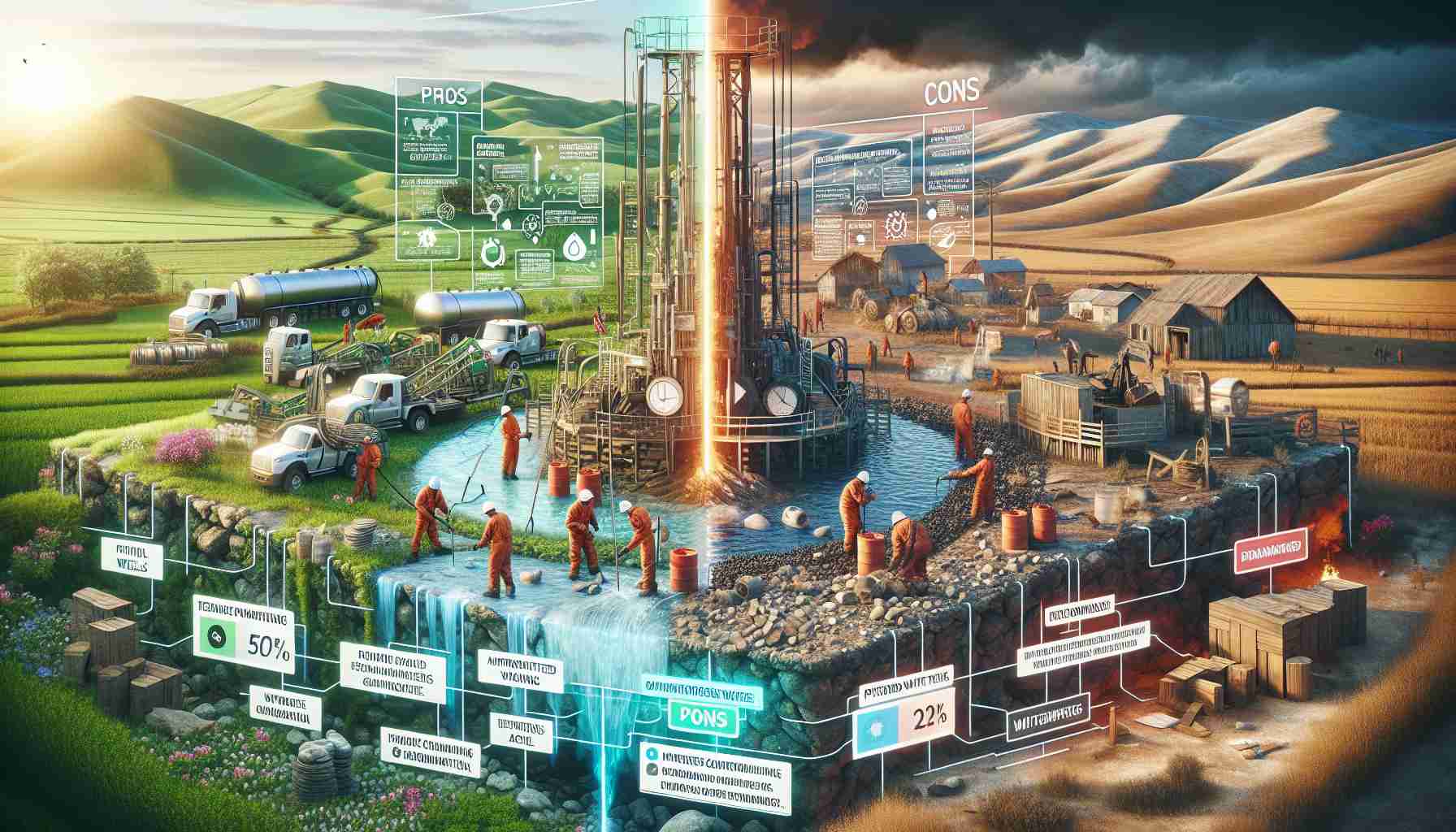- New fracking technologies aim to efficiently extract groundwater, addressing the strain on traditional water sources.
- Key advantages include accessing deeper aquifers, enhancing water recovery rates, and economic benefits from reduced extraction costs.
- Challenges include environmental concerns like groundwater contamination, significant infrastructure requirements, and lagging regulatory frameworks.
- The future of water well fracking hinges on balancing its potential with environmental and societal impacts, necessitating thorough research and strategic implementation.
Exploring new technologies in water well fracking unveils both promising advancements and critical challenges. As traditional water sources become strained, innovative fracking methods are being considered for extracting groundwater more efficiently. Here’s a breakdown of the advantages and disadvantages you should know.
Pros:
1. **Increased Water Access:** Novel fracking techniques have the potential to tap into deeper aquifers, increasing access to untapped water reserves that were previously unreachable.
2. **Enhanced Recovery Rates:** By employing hydraulic fracturing, water wells can potentially yield higher volumes of water, which could be a boon for water-scarce regions.
3. **Economic Benefits:** With more efficient extraction, costs could be reduced, providing affordable water sources for agricultural and municipal needs.
Cons:
1. **Environmental Impact:** Fracking has been associated with environmental concerns, such as the risk of groundwater contamination and increased seismic activity, causing distress among communities.
2. **Infrastructure Needs:** Implementing fracking for water wells requires significant infrastructure, which could strain local resources and increase energy consumption.
3. **Regulatory Challenges:** As water well fracking is a relatively new field, regulatory frameworks may lag behind, potentially leading to oversight issues.
Ultimately, as our world faces mounting water scarcity issues, balancing the promise of water well fracking with environmental and societal concerns will determine its role in our future. Careful consideration and comprehensive research are crucial as we look towards this emerging technology.
Revolutionizing Water Extraction: The Untold Story of Fracking Developments
## Water Well Fracking: Innovations, Challenges, and The Future Landscape
With global water scarcity intensifying, fracking technologies have emerged as a potential game-changer in the quest for sustainable water extraction. As we delve deeper into this innovative method, it’s crucial to understand the intricate balance of its benefits and drawbacks, alongside new developments and insights.
### Key Innovations and Trends
1. **Sustainability Measures**: Recent innovations in fracking technology include the development of eco-friendly fracturing fluids designed to minimize environmental impact. These fluids are biodegradable and reduce the risk of groundwater contamination.
2. **Digital Monitoring**: Advanced digital monitoring systems have been introduced to track the environmental impact of fracking operations in real-time. This can help in minimizing the consequences on local ecosystems by adjusting practices promptly.
3. **Integrated Systems**: Companies are now exploring integrated resource management systems that combine water extraction with renewable energy solutions to offset energy consumption and reduce the carbon footprint.
### Important Questions Answered
#### 1. How does fracking for water wells differ from traditional fracking for oil and gas?
Fracking for water wells focuses on hydraulic fracturing methods specifically designed to extract water, rather than oil or gas. The primary goal is to access deeper aquifers to enhance water availability without the need for hydrocarbon extraction. The technology is often adapted to reduce environmental footprints and is integrated with water sustainability goals.
#### 2. What regulatory frameworks exist for water well fracking?
Currently, water well fracking operates within a patchwork of regulatory frameworks, primarily governed at regional or state levels. Unlike oil and gas fracking, which has more established regulative protocols, water fracking requires the development of policies that address local water rights, environmental protection, and public health concerns. Agencies are beginning to engage in stakeholder consultations to devise comprehensive legislation.
#### 3. What are the long-term predictions for water well fracking in addressing global water scarcity?
Experts predict that with technological advancements and proper regulatory frameworks, water well fracking could play a significant role in alleviating water scarcity in water-deficient regions, particularly those with deep aquifer reserves. By 2030, it is expected that the method could significantly contribute to regional water security strategies. However, continuous innovation and environmental assessments are essential to sustainably harness its full potential.
### Essential Insights
– **Market Analysis**: There’s an expected growth in the demand for water fracking technologies as more regions face water scarcity. The market is predicted to expand significantly, with investments in eco-friendly fracking technologies leading the charge.
– **Security Aspects**: Attention to water security is increasing, with advanced technologies being developed to avoid contamination risks, enhance water purity levels, and ensure safe extraction methods.
– **Compatibility with Current Systems**: A significant challenge remains in integrating fracking technologies with existing water supply systems, demanding robust infrastructural upgrades and investment.
As this field continually evolves, staying informed on the developments in water well fracking will be crucial for policymakers, environmentalists, and industry stakeholders alike. For further insights into the advancements and impacts of fracking technologies, consider visiting Energy.gov for the latest updates and expert analyses.
